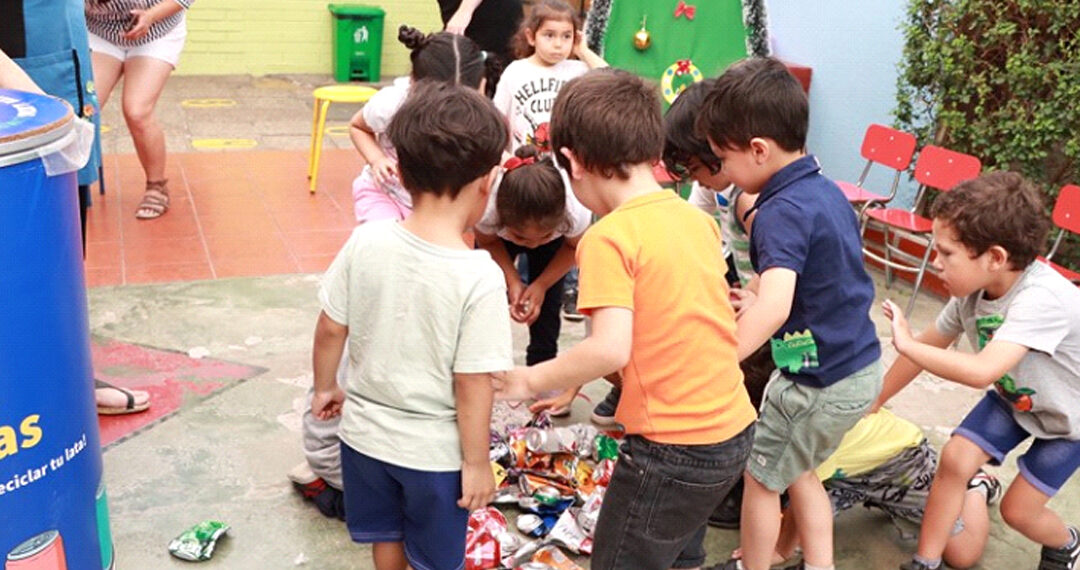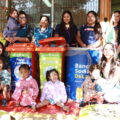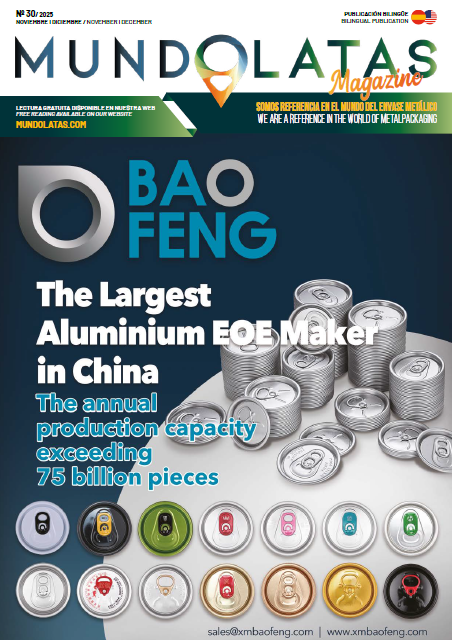Although there are still four months to go before the launch of the 2023 version, which will include cities such as Iquique, Biobío and La Araucanía, more than eight tons of aluminum containers have already been collected and more than 650 establishments have joined the movement.
The Social Can Bank has performed well in recent weeks, meeting targets and surpassing last year’s achievements according to early weighing records. Although there are still four months to go before the launch of the 2023 version, which will include cities such as Iquique, Biobío and La Araucanía, more than eight tons of aluminum containers have already been collected and more than 650 establishments have joined the movement.
This project seeks to promote environmental education, involve the population and increase aluminum recycling rates and the circular economy. In addition, for the first time, this initiative, which seeks to have a triple impact, has left Santiago de Chile and reached other regions of the country.
The Social Can Bank project, jointly promoted by Kyklos, Metalum and Ball Corporation, has already reached three regions in Chile: Iquique, Biobío and La Araucanía. According to the latest data on the collection of aluminum containers, this outreach has been effective as more than eight tons have been accumulated to date. At this rate, it is expected to exceed the 10 tons recorded the previous year. In addition, the number of participating schools has also increased to 650 compared to last year’s 500, impacting nearly 480,000 students nationwide.
According to Estevão Braga, Ball’s sustainability director, it is very important to be part of initiatives like this. “We are a company that works with the most sustainable packaging in the beverage chain. But what we are is the certainty that together we can always do more, and that by working with our head and heart we can improve other people’s lives. Thus, the idea of being part of the third edition of the Social Bank of Cans has to do 100% with the above. With continuing to support the recycling of aluminum in Chile for a greater good (providing play spaces and learning landscapes to highly vulnerable schools) and demonstrating that sustainability can also be social”, reiterated the executive.
The Social Bank of Cans has a positive impact on the education of communities, as participating kindergartens and schools can exchange prizes for improvements in their educational infrastructure and equipment. They also receive an educational program focused on the environment, with fun activities adapted to each level that work on the indicators of Personal and Social Development (IDPS) through challenges. This supports schools in their academic planning and provides evidence for those in the process of obtaining SNCAE certification.
Likewise, educational establishments in Santiago, Iquique, Biobío and La Araucanía can still register their cause in this short form and will be automatically registered in the Social Bank of Cans. This can range from the construction of school clean points, the creation of green areas or the purchase of sports equipment.
Globally, aluminum is the most recycled material in the beverage industry, accounting for approximately 70%. However, in Chile this percentage is much lower, around 33%. The opportunity behind aluminum can recycling inspired the creation of the Social Bank of Cans in 2020 from a partnership between Kyklos, an environmental culture B company, and Metalum, the leading aluminum recycling company in Chile.
In 2022, Ball, a world leader in sustainable aluminum packaging, joins as a promoter in order to amplify the environmental and social impact of the Social Can Bank in educational establishments. Last year, 500 schools in the RM participated and more than 10,000 kilos of aluminum cans were recovered and converted into resources to benefit more than 30 schools with educational prizes, in addition to making a monetary contribution to the Patio Vivo Foundation.








